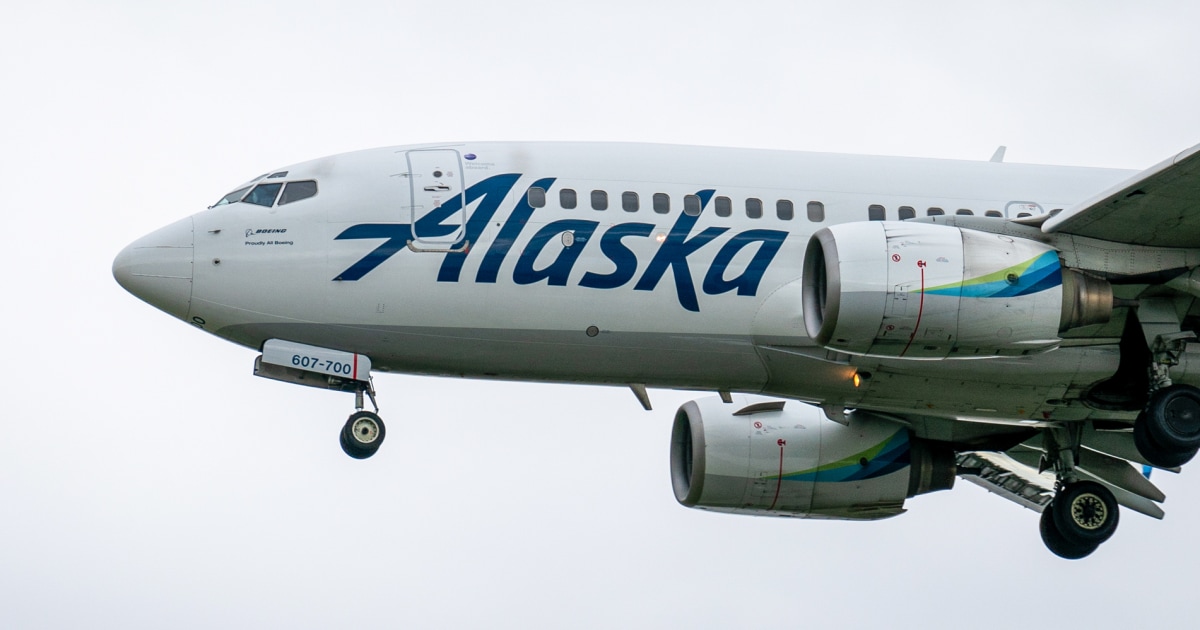WASHINGTON — Federal funding for air travel in rural areas will run out Sunday if the government shutdown continues, threatening to isolate remote communities across the country.
The Essential Air Service (EAS), established in 1978, provides funds to airline carriers to operate out of rural airports for routes that would otherwise be unprofitable. The program is a lifeline for remote communities because it connects them to cities with larger airports, ensuring access to medical treatments, work opportunities and commercial goods that would otherwise be a lengthy travel away.
“Money runs out this Sunday. So there’s many small communities across the country that will now no longer have the resources to make sure they have air service in their community,” Transportation Secretary Sean Duffy said in a press conference Monday. “Every state across the country will be impacted by the inability to provide the subsidies to airlines to service these communities.”
The EAS gives money to regional air carriers in 177 communities across all 50 states, as well as Puerto Rico, according to DOT. The Regional Airline Association, an advocacy group for regional airlines that receive EAS funds, said that “commercial air service at EAS airports had an economic impact of $2.3 billion and supported more than 17,000 U.S. jobs” before the pandemic.

“This program is an essential economic lifeline for over 500 rural communities who are often hit the hardest whenever there is disruption in the National Airspace System,” the association said in a statement. “[We] continue to urge Congress to come together and reopen the government for the good of the American public. The current government shutdown only adds stressors to an air transportation system that is already plagued with delays, disruptions, and cancellations.”
As the shutdown continues with no end in sight, the Federal Aviation Administration is already confronting staffing shortages and slight increases in sick calls as air traffic controllers work without pay. NBC News reported Monday that no air traffic controllers were expected at Hollywood Burbank Airport in the Los Angeles area for hours, and that the main airports in New Jersey and Denver also experienced staffing issues.
We’d like to hear from you about how you’re experiencing the government shutdown, whether you’re a federal employee who can’t work right now or someone who is feeling the effects of shuttered services in your everyday life. Please contact us at tips@nbcuni.com or reach out to us here.
Congress appropriated nearly $500 million to the EAS in 2024; The expenditure is typically bipartisan, serving rural communities in states across the country. However, earlier this year, President Donald Trump looked to slash the program’s budget by $308 million in his discretionary budget. He had recommended eliminating the program in its entirety in a budget blueprint during his first term.
The federal funding is particularly important for Alaska, where the state’s hundreds of islands and vast swaths of tundra make traveling by air a necessity. According to an October 2024 Transportation Department report, Alaska received more than $41 million in EAS subsidies. Duffy told reporters that the “number one user” of rural airspace is Alaska, and that the state “will be impacted” if funding runs out.
“This is almost breathtaking, when you think about the implications for these communities, because there is no road for any of these places,” Sen. Lisa Murkowski, R-Alaska, told NBC News on Monday. “This is a big stressor right now.”
Murkowski said that Alaska Airlines would maintain service at a handful of airports regardless of EAS funding but that she was worried for smaller carriers. She added that she was trying to get in touch with Duffy. Alaska Airlines did not immediately respond to a request for comment.
Meanwhile, Murkowski’s fellow Alaska senator, Republican Dan Sullivan, said he was already in talks with the transportation secretary about the issue.
“We’re working through it to make it have as little impact as possible. These are EAS subsidies, but this just goes to the whole damn Schumer shutdown,” Sullivan said, referring to the GOP nickname for the shutdown, which Republicans say was caused by Democrats. “But right now, what I’m trying to do is work with the secretary of transportation, who I was exchanging text messages and voice messages with, to try and limit that kind of damage.”
Ryan Huotari, the manager of the Sidney-Richland Airport in Sidney, Montana, said the airport and his community depend on EAS funding.
“If the EAS didn’t exist, I don’t think it would be able to function,” Huotari said of the airport. “Our winters out here are 20-below, they’re pretty treacherous. It’s pretty scary driving from here to Billings. I’d rather be in an airplane than a car.”
Sidney is only an hour flight away from Billings, Montana’s largest city, but it’s about a four-hour drive each way. Huotari says that the airport is crucial for people who can’t make the eight-hour round trip, like the elderly who need medical care in Billings, or the oil workers who commute between the two areas.
Huotari, who helmed the airport during the last shutdown in 2018, said he’s used to the EAS being on the budgetary chopping block but, with no solution in Congress in sight, this time he’s worried.
“My biggest concern is getting people paid. There are a lot of federal grants out there that I’ve got right now,” he said. “There’s a lot of money hanging out there, like in the millions.”

